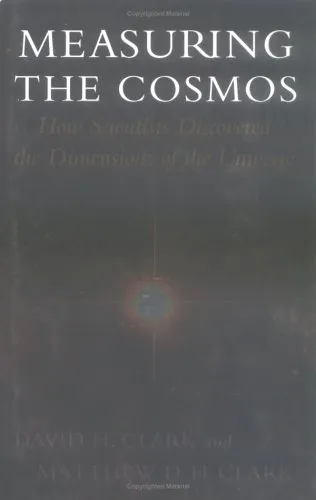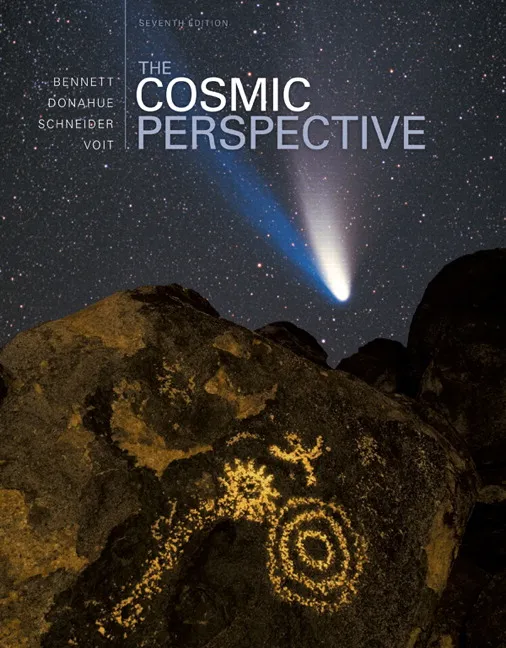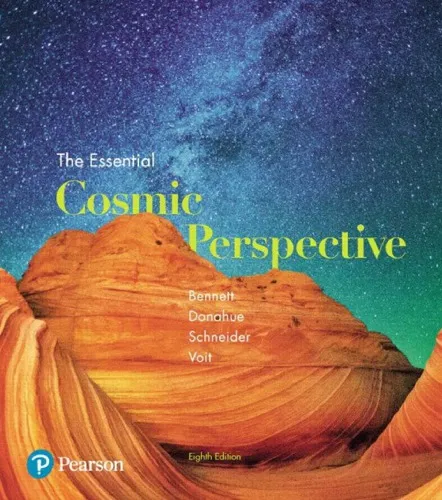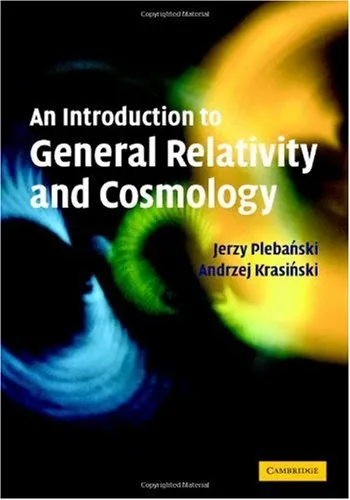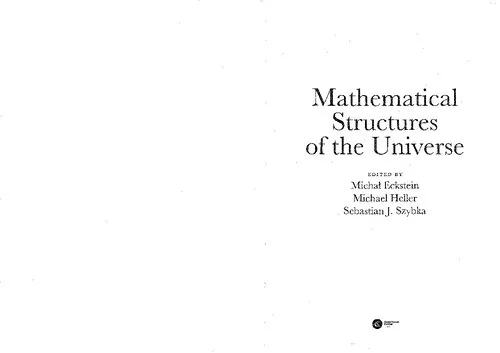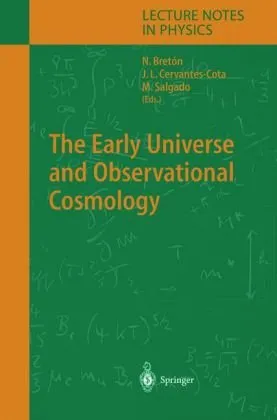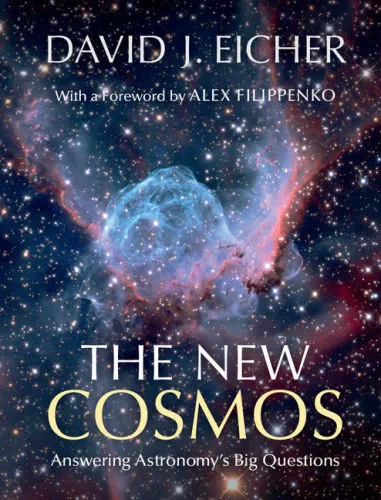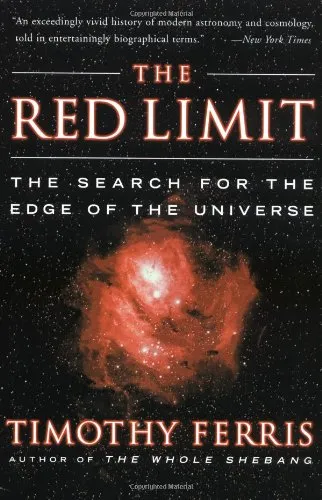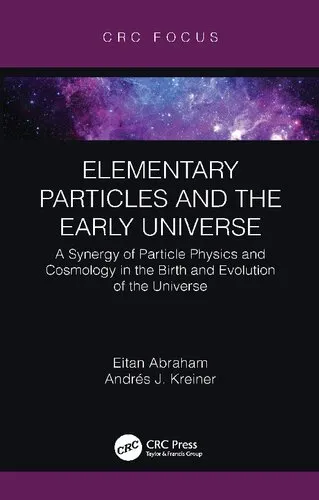Measuring the Cosmos: How Scientists Discovered the Dimensions of the Universe
4.5
Reviews from our users

You Can Ask your questions from this book's AI after Login
Each download or ask from book AI costs 2 points. To earn more free points, please visit the Points Guide Page and complete some valuable actions.Related Refrences:
Introduction to "Measuring the Cosmos: How Scientists Discovered the Dimensions of the Universe"
"Measuring the Cosmos: How Scientists Discovered the Dimensions of the Universe" is a fascinating exploration of one of humanity’s greatest intellectual achievements: understanding the vast scale of the cosmos. Written by David H. Clark and Matthew D.H. Clark, this book masterfully guides readers through the history, triumphs, and challenges of measuring the universe, explaining in accessible terms how scientists throughout the centuries have unraveled the mysteries of astronomical distances. With its combination of historical context, scientific insights, and philosophical reflections, the book appeals not only to astronomy enthusiasts but also to anyone intrigued by the relentless human pursuit of knowledge.
Our understanding of the cosmos did not develop overnight. The journey to measure the universe has spanned millennia, involving groundbreaking discoveries, meticulous observations, and bold theories. From the ancient Greeks who used simple geometry to calculate the Earth’s circumference, to the modern-day pioneers who employ satellites, radio telescopes, and even gravitational waves, this book reveals how each step has brought humanity closer to comprehending the immensity of the universe. At its core, "Measuring the Cosmos" is as much a testament to human ingenuity as it is a chronicle of scientific discovery.
Detailed Summary of the Book
The book delves into key milestones in the history of measuring the universe. It opens with a discussion of how early civilizations perceived the cosmos, emphasizing the intellectual leaps made by ancient Greek astronomers such as Eratosthenes and Aristarchus. Their innovative techniques laid the foundation for later advancements, even if their initial estimates were far from accurate.
As the narrative progresses, readers are taken on a journey through the scientific revolutions initiated by figures like Copernicus, Galileo, and Kepler. These luminaries introduced ideas about planetary orbits and heliocentrism, shaking the foundations of conventional thinking and empowering others to develop more precise models of the solar system.
One of the book’s central themes is the concept of the astronomical unit (AU)—the baseline measurement for the distance between the Earth and the Sun. The authors explain how methods such as parallax, transit observations, and radar measurements have evolved over time, giving increasingly accurate values for the AU. These techniques are not just technical details but markers of humanity’s growing ability to conceptualize its place in space.
The discussion extends to the discovery of galaxies beyond the Milky Way and the work of Edwin Hubble, whose findings on the expansion of the universe revolutionized astrophysics. Moreover, the book explores the role of advanced technology, from space probes to gravitational wave detectors, in refining our measurements of celestial distances today.
By weaving together history, science, and compelling storytelling, "Measuring the Cosmos" answers not only the "how" of measuring the universe but also the "why," illuminating the profound significance of these discoveries.
Key Takeaways
- Humanity has strived for millennia to measure the cosmos, beginning with ancient geometric methods and culminating in state-of-the-art technologies.
- Breakthroughs like the parallax method, astronomical unit measurements, and Hubble’s Law transformed our understanding of scale and distance in space.
- The tools and concepts used to measure the cosmos are as much about human creativity and perseverance as they are about advanced technology.
- The book underscores that understanding the cosmos is an ongoing process, with much yet to discover about the universe's size, shape, and destiny.
Famous Quotes from the Book
"The universe is not just a vast expanse of stars and planets; it is a canvas that tells the story of humanity's quest to comprehend its place in the grand scheme of nature."
"Each seemingly simple calculation, each small measurement, represents a triumph of intellect over ignorance, a testament to the human spirit’s refusal to accept the unknown."
Why This Book Matters
The importance of "Measuring the Cosmos" lies not only in its meticulous recounting of scientific achievements but also in its ability to inspire. By chronicling the strides made in measuring the universe, the book serves as a reminder of humanity’s unlimited curiosity and ingenuity. It bridges the gap between specialized scientific knowledge and the general reader, making complex concepts accessible and deeply engaging.
At a time when our understanding of the universe is evolving faster than ever, this book provides crucial context, revealing the patience and perseverance required to navigate the long journey of discovery. It stands as a testament to our species’ enduring desire to seek out truth and explore the unknown.
Whether you are a student of astronomy, a history enthusiast, or simply a curious reader, "Measuring the Cosmos" offers an enriching perspective on how far we have come—and how far we still have to go—in comprehending the universe’s vast dimensions.
Free Direct Download
You Can Download this book after Login
Accessing books through legal platforms and public libraries not only supports the rights of authors and publishers but also contributes to the sustainability of reading culture. Before downloading, please take a moment to consider these options.
Find this book on other platforms:
WorldCat helps you find books in libraries worldwide.
See ratings, reviews, and discussions on Goodreads.
Find and buy rare or used books on AbeBooks.
1489
بازدید4.5
امتیاز0
نظر98%
رضایتReviews:
4.5
Based on 0 users review
Questions & Answers
Ask questions about this book or help others by answering
No questions yet. Be the first to ask!
